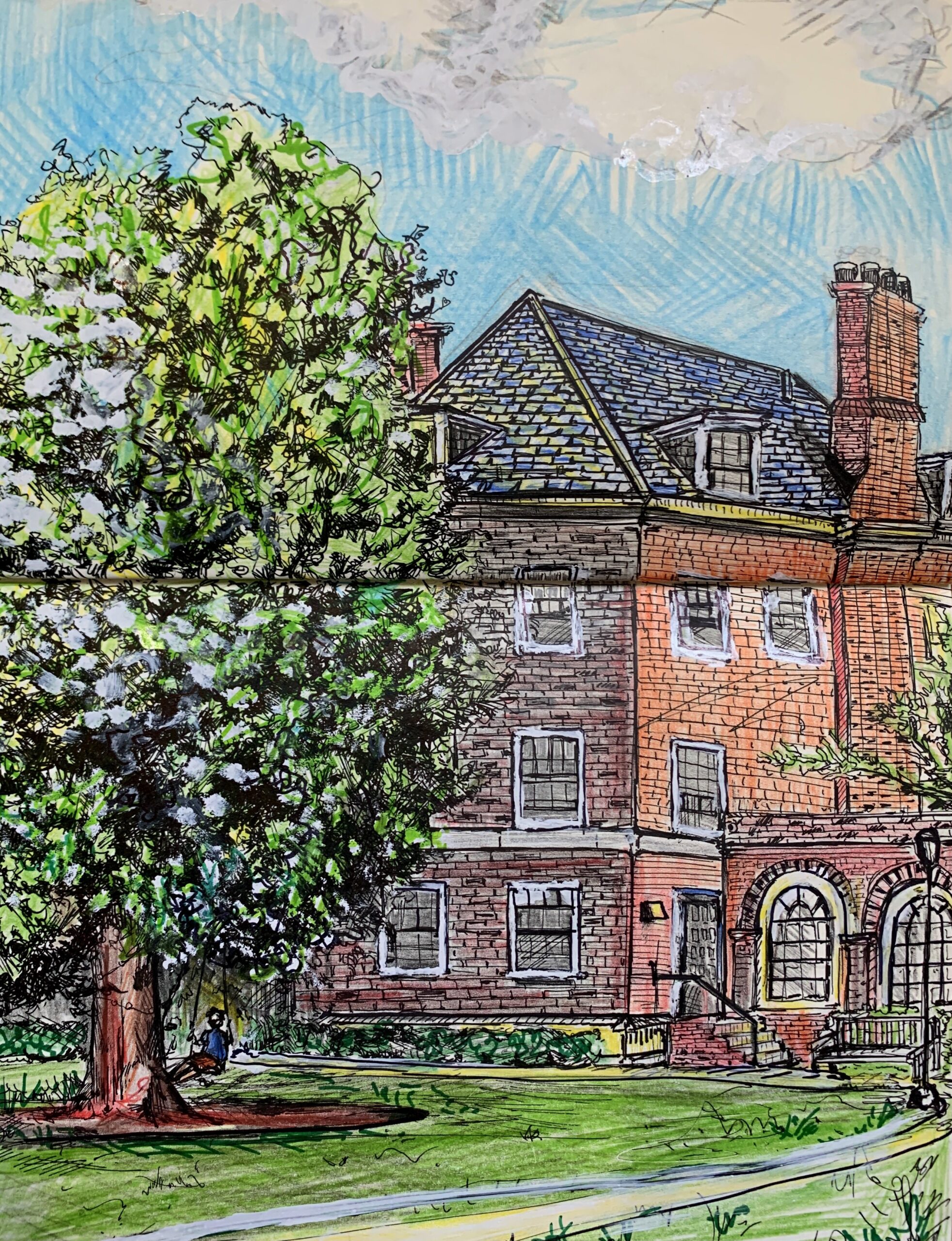
Winnie Jiang
Contrary to popular belief, I think that numbers often say what words can’t. In Yale’s colossal ecosystem, we can’t help but lose track of nearly everything throughout a semester. From deadlines to meetings to birthdays, time slips through our fingers, only notifying us when it feels too late. It was this fleeting feeling, of the semester moving too quickly, that gave rise to my proposition about numbers. It was this feeling of losing time that forced me to count the seconds.
I was warned: the spring semester will go by quickly. But it was only when I counted the 21 days, four math classes and two weekends left that this truth settled in. When my tenth economics problem set marked the last one before our third and final exam of the semester, I realized that the number ten also marked the amount of late nights in Starr I had spent finishing them. When the $15 on my laundry app ran out as I paid for the dryer, it dawned on me how many times I had hiked up and down the stairwells of Old Campus with my laundry bag. Of the 13 weeks that made up the second semester, it was only in the 11th week that the weight of time finally caught up with me. And I, like many of you, couldn’t help but wonder — what had I been doing the last ten weeks?
We can generally reassure ourselves that we made the most of the semester. We settled in despite the winter, fell into analogous routines and lived for the weekends until Spring Break. Then, we flocked to Central America, basked endlessly in the sun, only to return to the cold routines of New Haven once again — this time, in April instead of February. Ironically, these two sentences described the lives of most Yale students for the last ten weeks, but perhaps these generalisations of our experiences are the reason that time has flown without recognition. Maybe in assuming the normalcy of our lives, we lose track of the special moments embedded throughout the days. So here lies the foundation of my proposition about numbers; because time is going all too quickly, numbers convey the specified passage of time that experiences can’t.
Twice a week, I’ll eat dinner with my rugby team after practice. On Sundays, I’ll get lattes with my suite. On Mondays, Wednesdays and Fridays, I frequent the Silliman dining hall for breakfast. Though I could vaguely recall these experiences as “meals with friends,” I could quantify them as 20 shuttle rides to Morse for pizza, ten coffee walks from Atticus to Welch, and 30 meal swipes for Silliman scrambled eggs — somehow, the latter numbers make me feel all the better in recounting my semester. There’s something special about numbers and their nuanced ability to make us feel more than some words can.
With so much happening on campus, students are too used to minimizing moments into items. We maximize productivity and live from one deadline — or vacation — to the next. But in minimizing these experiences, we demean their value. And when we finally pause to reflect, it’s not the vague blur of routine that lingers, but the numbers — the late nights we counted, the steps retraced, the weeks left — that give shape to our memories.
When we look back, we might not remember much, but it can be easier to remember the numbers. So finally, here is my proposition: in a world where time moves too quickly to hold, numbers become our anchors — offering precision and presence where memory alone may falter. When we look back at the semester, we will always have the small quantified nuances of these experiences that allow us to take in each moment, second by second.







